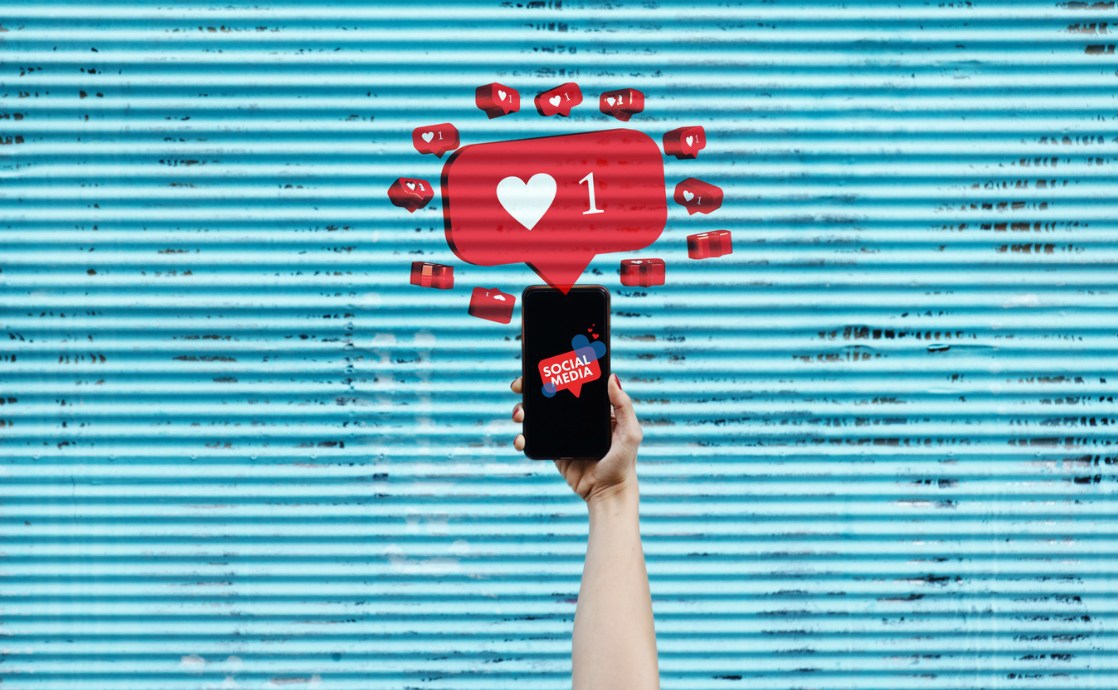The views expressed in our content reflect individual perspectives and do not represent the authoritative views of the Baha'i Faith.
Remember how social media once promised us a brave new world of interconnectedness, community building, and an expanded public sphere enriched by the free exchange of ideas?
Alas, although we still attempt all of the above in social media, it’s hard to find those needles in the haystack of amplified outrage and verbal abuse that have infected social media today.
So how might we shrink that toxic haystack and multiply the needles?
The technology itself isn’t the challenge. If someone uses a hammer as a weapon, it’s not the hammer’s fault. Social media is a communication tool; the problem is the behavior of its users.
RELATED: Breaking the Pattern of Polarization on a Weaponized Web
Policy by itself won’t lead to a more productive social media world. I’d like to suggest a one-word solution: courtesy. There’s a lot behind this seemingly quaint concept. Baha’u’llah, the prophet and founder of the Baha’i Faith, said this about courtesy, which he characterized as “the prince of virtues:”
O people of God! I admonish you to observe courtesy, for above all else it is the prince of virtues. Well is it with him who is illumined with the light of courtesy and is attired with the vesture of uprightness. Whoso is endued with courtesy hath indeed attained a sublime station.
Dictionary definitions of courtesy include “politeness” and “good manners,” but Baha’u’llah elevates courtesy above mere social codes that we follow because we’re taught manners. Courtesy is fundamental to how we interact with people – all people, including people we dislike or with whom we’re angry. “He who is devoid of courtesy is indeed bereft of faith,” Baha’u’llah wrote.
Abdu’l-Baha, Baha’u’llah’s son and successor, added important details to why we should all strive to be courteous:
The highest wish of them that are filled with the Divine Spirit is unity and harmony amid the friends and spiritual connection among the hearts of the believers; that they may shine like unto brilliant stars in this darksome world, teach all the peoples of the world the mores of love, and show everyone kindliness and friendship, sympathy and courtesy; that they may become as refreshing water to every thirsty one, the bread of heaven to every hungry one, a healing medicine to every ailing one, and the cause of everlasting glory to every abased one.
So, according to the Baha’i teachings, courtesy is much more than mere niceness – it’s a fundamental virtue necessary for healing the world, from personal interactions to media to politics. If we want to cultivate that virtue, we don’t just reserve courtesy for our friends or for people who can do us favors – we’re courteous because we love humanity. I want to be courteous; I must be courteous.
But approaching all of our interactions with faith and love is the opposite of how many people approach social media. Fighting fire with hotter fire seems to be the rule: “I can’t believe so and so said that! I can’t let him get away with this. I must respond with the cleverest, most devastating tweet that will totally ‘destroy’ him!” The result is the object of my anger destroys back, and the tweet storm escalates, raging until some other outrage gains attention – and making enemies rather than friends.
You may be thinking that this Baha’i call to courtesy seems like an impossible standard. So many people push my buttons, so many people viciously attack those they disagree with, so many people are as far from courteous as we can imagine – can I really be courteous to them in return?
It’s not easy. Social media seems designed to bring out the worst in any of us. That’s because, for now, most social media outlets are controlled by profit-seeking companies – who have found that outrage keeps people ‘engaged’ longer, thus increasing the companies’ revenue.
Today that’s how social media works – but it doesn’t have to.
If we each attempted to follow the Baha’i standard of courtesy, we could lower the heat and increase the light in our social media interactions. A true spiritual seeker, Baha’u’llah wrote:
… must never seek to exalt himself above anyone, must wash away from the tablet of his heart every trace of pride and vainglory, must cling unto patience and resignation, observe silence, and refrain from idle talk. For the tongue is a smoldering fire, and excess of speech a deadly poison. Material fire consumeth the body, whereas the fire of the tongue devoureth both heart and soul. The force of the former lasteth but for a time, whilst the effects of the latter endure a century.
That seeker should, also, regard backbiting as grievous error, and keep himself aloof from its dominion, inasmuch as backbiting quencheth the light of the heart, and extinguisheth the life of the soul.
Yes, it’s hard to stay conscious of these lofty principles while online. We tend to go on automatic pilot: scroll, pause on something eye-catching, and then take the plunge. Before long, we’re several clicks in with a racing heartbeat, ready to go to war with a keyboard.
RELATED: Tech, Touch, and Nomophobia: Are We Over-Connected?
Here’s where the old take-a-deep-breath-and-count-to-10 trick can help. Take a moment and ask yourself: Is this topic really important, and even if so, is now the time and is this a productive forum for discussing it? Is a rational discussion even possible at this point?
My Facebook friends know I’m a Baha’i. It’s one of the few reasons I post. Do I practice what I preach?
Above all, I claim to believe in Baha’u’llah. He commands me to be courteous, and that obliges me to be courteous, even if I’m not sure of its benefit – but experience has taught me that I am sure of its benefit.
When I worked in the newspaper business, community members across the political spectrum respected me; they told me so. Sticking with the objective principles of journalism was a big part of it, but so was courtesy, even though the word ‘courtesy’ wasn’t on my mind. I would ask myself: What’s the best way to word this statement, whether agreement or disagreement?
There are courteous ways to disagree, and discourteous ways. When I remembered to use it – although I certainly don’t have a perfect record – the courteous approach always worked, and if I went astray, feedback came quickly.
Finally, I’ve wondered: how would social media companies stay in business if most people followed the Baha’i principles of unity, love, and courtesy online? Maybe those same algorithms would see how courtesy keeps people online longer, since they wouldn’t be driven away – and then the true promise of worldwide social media could be fulfilled.
















Comments
Sign in or create an account
Continue with Googleor